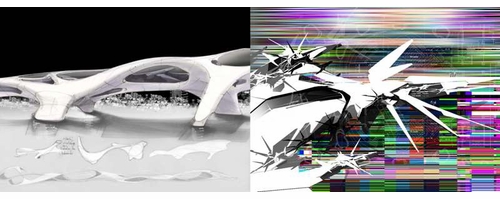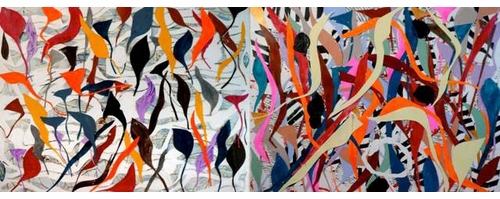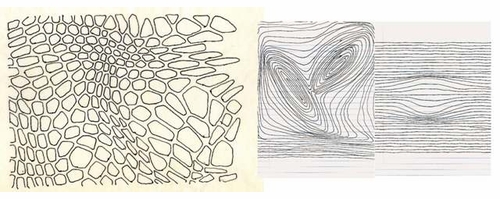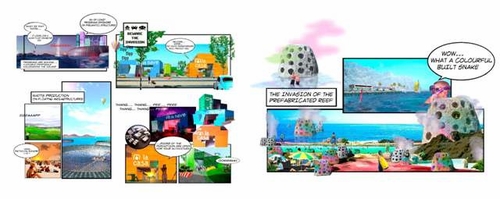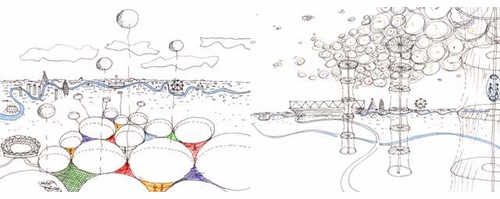| RECENT POSTS DATE 1/14/2025 DATE 12/26/2024 DATE 12/18/2024 DATE 12/17/2024 DATE 12/14/2024 DATE 12/12/2024 DATE 12/12/2024 DATE 12/8/2024 DATE 12/8/2024 DATE 12/7/2024 DATE 12/7/2024 DATE 12/5/2024 DATE 12/5/2024
| | | CORY REYNOLDS | DATE 2/28/2011In his introduction to Architects' Sketchbooks, Metropolis Books' stunning new collection of drawings, paintings and models by 85 architects from around the world, editor Will Jones writes, "Where do architects get their inspiration? What does that first stroke of pencil on paper look like? And how do they embark on the monumental task of turning a sketch into a skyscraper? Architects' Sketchbooks provides the reader, or perhaps we should say viewer, with a rare glimpse of the first inklings of the individual creative processes – the blood, sweat and pencil lead – that go into designing the world we live in."
All sketches and quotations below are reproduced from the book.
Sketches by the German collective, 3Deluxe. "The drawings are created with different techniques, types of pencils and colors, and then further processed digitally... After completion, we often rediscover sketches from a very early project phase that passed out of our minds--retrospetively it turns out that they largely anticpated the final shape."
Sketches by London-based Will Alsop. "Painting to me is a way of exploring architecture. It's all the same thing. I can sit in my studio, creating something on a piece of paper and the feeling that you get is almost as good as having finished a building. It's not about designing something. It's about discovering what something could be, and I think that's a very important distinction."
Sketches by San-Francisco based Thom Faulders of Faulders Studio. "Prior to beginning digital design drawings, I'll sketch on a stack of white letter-size sheets of paper—nothing precious, just plain space upon which I can play around with ideas graphically… it is important that the process is non-precious and non-linear. I'll reshuffle the drawings, throw some out, post others on the walls. I'll also scan these small sketches into the computer, enlarge them and print them as very large images. The initial sketch takes on a new dimension, one that can be further worked and developed at the larger scale."



Sketches by M15 Arquitectos, Spain. "Sometimes we advance and other times we move backwards. We work like detectives. Once we have the clues, they are arranged and we return to discuss the precision required to solve the puzzle in each case. What we reject completely is the idea of growth from a single sketch that then becomes a model and then, like a mannequin, receives the evening gown. Architecture is more unique and intricate than that."
Sketches by Carlo Ratti of Turin and Cambridge, Massachussettes based carloattiassociati. "If it is true that, as Mies said, 'Architecture is the will of an epoch translated into space,' we would use the following time/design line: zeitgeist > idea> concept sketch > diagram sketch > design sketch > design maquette > design > space. This line contains many feedback loops, hence we feel the process allows us to translate an idea into physical form and constantly go back to our initial hypotheses."
 Metropolis Books
Hbk, 11.75 x 8.75 in. / 352 pgs / 500 color.
| |
|
